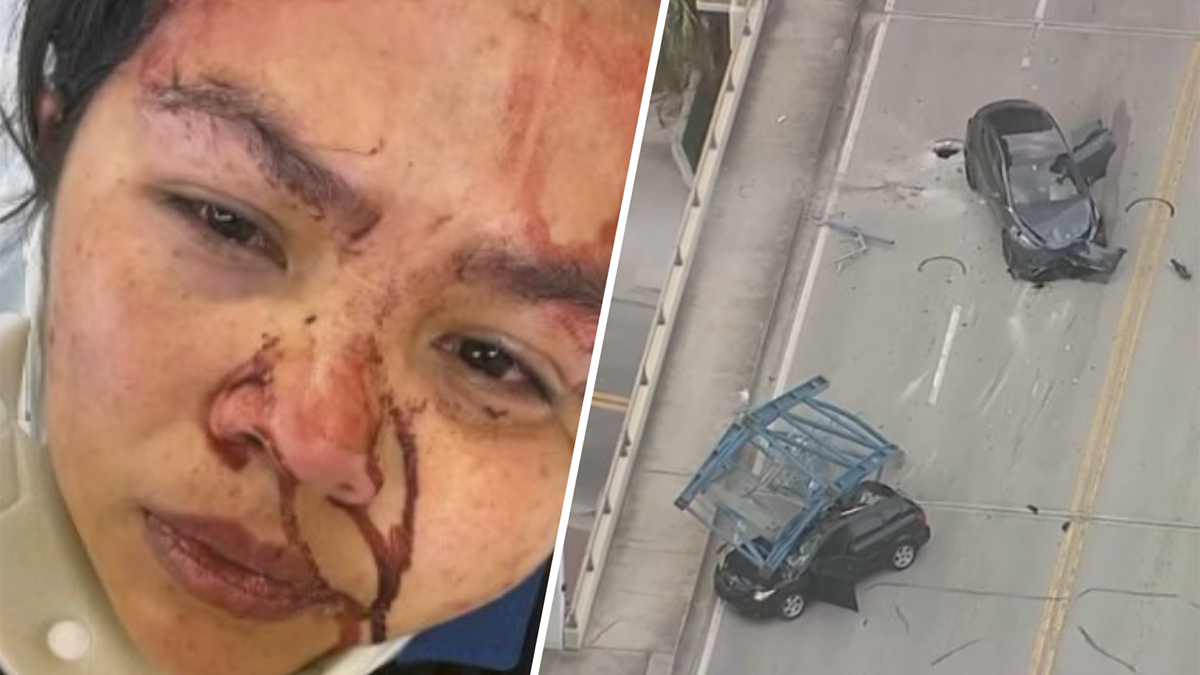A mentally troubled man fatally shot by a Florida deputy while carrying an air rifle may have been attempting to commit so-called "suicide by cop," a police detective testified Thursday at a hearing in the deputy's manslaughter case.
Broward Sheriff's Office Detective John Curcio also testified he believes Deputy Peter Peraza was justified in shooting 33-year-old Jermaine McBean in 2013 because the deputy feared for his own life. The testimony came at a hearing in which a judge granted Peraza's attorney access to McBean's mental health records, including several previous hospitalizations for bipolar disorder.
Based on witness statements, Curcio said McBean should have been aware that carrying a real-looking gun along a busy street in broad daylight while acting oddly — one witness said McBean was yelling and walking like a stiff-legged zombie — would surely bring a swift law enforcement response.
Peraza attorney Eric Schwartzreich asked Curcio if McBean may have sought to commit suicide by forcing officers to shoot him, or "suicide by cop."
"I think that's a good possibility," Curcio replied.
Peraza, 37, faces up to 30 years in prison if convicted of manslaughter for shooting McBean on July 31, 2013. McBean's family insists he was listening to music through earbuds and did not hear commands to drop the rifle, which was unloaded and fired only pellets. McBean was black. Peraza is white.
McBean's mother, Jennifer Young, reacted angrily to Thursday's testimony, with family attorney David Schoen contending that the Broward Sheriff's Office was seeking to protect Peraza at all costs. The family has filed a federal wrongful death lawsuit accusing the sheriff's office of orchestrating a cover-up.
Local
"He killed my son and is trying to get away with it," Young told reporters. "I'm very upset. He shot him, and he has to be held responsible."
Broward Circuit Judge Michael Usan agreed to allow Schwartzreich to obtain records of several of McBean's hospitalizations for mental problems prior to the shooting. Usan said he will review them privately before deciding which, if any, can be made public. The judge added that Peraza's right to evidence that might be useful in his defense outweighed McBean's right to privacy.
"You can't prosecute someone and then use (privacy laws) to hold back evidence that may be important to them," Usan said.
McBean, an information technology worker with two college degrees, had been hospitalized for several days prior to the shooting after suffering a breakdown at work, according to previous testimony. Instead of returning to work as planned, McBean went to a pawn shop to buy the air rifle on the day he was killed.
Schwartzreich said the mental health records are crucial to Peraza's defense by potentially showing McBean's problems played a role in his death.
"Our theory is this was suicide by cop," Schwartzreich said. "I want to know everything there is to know."
But Assistant State Attorney Tim Donnelly said he opposed release of the records, contending that they have no bearing on what led to the shooting.
"What they (Peraza's defense) want to do is, they want to smear the victim," Donnelly said.



